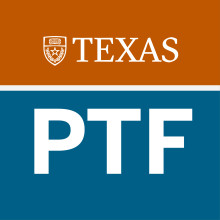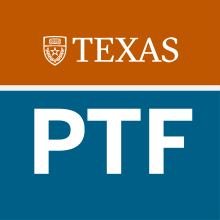Individual Fellow Initiatives

Interprofessional Simulation In Pediatric Medicine
Interprofessional education (IPE) is an essential component of all healthcare training and has a growing role in the UT College of Pharmacy curriculum. Additionally, the use of simulations in IPE can provide students with real-world, real-time scenarios that can help build interpersonal skills and pharmacotherapy knowledge in students.

Characterizing Complexity and Frequency of Feedback Given to Students: What Actually Helps Achieve Learning Outcomes?
This project is aimed at improving learning outcomes in programming courses at UT Austin, specifically targeting ECE312 (Software Design and Implementation I) and ECE360C (Algorithms), but that can potentially be expanded to other programming courses and beyond. The project is designed to enhance students' understanding of fundamental concepts by characterizing the complexity and frequency of feedback provided during completion of assignments.

Does Increasing Course Depth While Reducing Breadth Improve Learning in College Students?
Student-centered learning strategies have been effectively used to increase academic performance and learning in students. Educators have hypothesized that course content reduction can also improve student learning. However, support for this idea is lacking. In the present project, I am planning to assess whether a content reduction strategy increases the academic performance of upper-division stem students at the University of Texas-Austin.

Artful Learning: Integrating Art into Teaching Practice
This project aims to transform academic instruction by integrating art into the classroom. We believe that art can make subjects more engaging and help students connect with the material on a deeper level. By integrating diverse forms of art—such as virtual art, music, film, theater, and more—into the curriculum, we aim to create a more interactive and stimulating learning environment while also supporting students' mental health through therapeutic art sessions.

Implementing Computational Modules into the Materials Science and Engineering Undergraduate and Graduate Curricula
The development of increasingly powerful computational resources has made computational competencies new core forms of literacy that should be formed as part of basic education across all STEM fields.

QR Learning for addressing social and racial injustice
The current proposal envisions developing alternative pedagogical materials for the “Measuring Racial Inequality” course, written in plain language and accessible to students from social sciences/humanities and underserved communities and families.

Disability Justice as Pedagogical Practice
Within social work curriculum, the topic of disability is either explicitly absent or medicalized. The lack of a rich understanding of disability as a cultural experience that intersects with other cultural experiences is concerning given our ethical guidelines of cultural competence and equity. Additionally, not only are students excluded via this omission, but so are faculty, staff, and social workers working in the field. Approximately a quarter of the population identifies as having a disability, yet our curriculum barely acknowledges their experiences.

Mentored 2 Mentor
This project focuses on training Clinical Audiology Doctoral students (AuD) to be clinically certified supervisors upon entering the field post-graduation. According to the American Speech-Hearing Association (ASHA), Texas ranks 48 out of 50 states for the number of clinically certified audiologists who are needed to supervise doctoral students in order for those students to have ASHA-approved hours (https://www.asha.org/siteassets/surveys/audiologist-and-slp-to-populati…).

Elements of Computing Concentrations
The Computer Science department provides CS classes to the whole university via our Computer Science "Elements" program. The Elements sequence can be started by any student in any major with no prerequisites; later Elements courses only have prerequisites from earlier Elements courses. Some students choose to take just 1 or 2 CS classes in order to learn some programming, and others choose to take 18 hours in order to earn the Elements of Computing Certificate. The CS Elements program serves a very diverse population of students, in terms of backgrounds, majors, and goals.

Building Rigorously Compassionate Syllabi: Fostering Individual Accountability and Community Care
Our project seeks to revitalize the syllabus document as a tool of inclusion. We are interested in making visible the “hidden curriculum” with which students often struggle. The syllabus language, grading and attendance policies, communication and assignment fulfillment methods, course calendar flexibility, course material formats – these can all contribute to developing personal accountability and investment in community.

Offering Real-World Opportunities for Students Enrolled in Statistics and Data Science Undergraduate Research
The primary goal of this community-based service project is to provide experiential learning opportunities for undergraduates interested in statistics and data sciences while supporting the broader Austin-area community. Coordinating with local organizations, students enrolled in some of our SDS courses are gaining hands-on experience in data analysis while exploring authentic contexts. This innovative and collaborative effort provides a community-based model that allows students and local organizations to co-develop and answer real-world research questions.

Teaching Engineering through Murder Mysteries and Personalized AI Tutor
CE 357: Introduction to Geotechnical Engineering is a third year required undergraduate course that has traditionally been a challenging course for students due to its abstract nature. The average course rating for CE 357 is 3.8 in the last twenty years. I have successfully transformed the lecture modules to achieve a significant increase in interest and students’ performance in the course. Although preliminary work looks promising, I want to scientifically evaluate the effectiveness of the course and publish the findings.

Teaching Law and Religion
The aim of my proposed project is then the integration of the seemingly disparate studies of law and
religion. The study of both is an important branch of comparative law and global legal history that I aim

Strengthening the Sustainability Studies Degree
Sustainability Studies graduated its first sizeable cohort in 2022, and the program has yet to undergo a comprehensive review. Conversations with students revealed their desire for better access to the professional field of sustainability across the sectors of non-profit, government, and business. This is an area that the current structure of the degree does not adequately address. To address these concerns, I am proposing a three-pronged approach. My first initiative is to build a database of internships across the three sectors mentioned above.

Early Exposure to Data Skills in Introductory Biology Sequence
Biology continues to be seen as a field for science-interested, but math-disinterested students. However, due to the surge in data use in all biology careers, and the focus in research on sequence data, there is a strong need for data skill development in biology degree programs. Math anxiety poses a specific challenge for biology education. A suggestion to overcome this, is an early introduction to data skills in the two-course sequence of Introductory Biology.

Inclusive STEM Communication for Engineering Students
The challenges facing modern engineers are more complex than ever. Current engineering issues such as
algorithmic bias, data security and privacy, and sustainability do not only require technically skilled engineers,
but also engineers who are conscious about structural inequities and biases.

Centralization of UT Resources
Resources related to accessibility at UT-Austin are not centralized in a single location that makes them easy for
students, staff and faculty to find them. As a result, UT community members cannot efficiently access the
resources they need because numerous different departments and units are responsible for them. Thus,

Imagery for Critical Thinking: A Pedagogical Approach for Engineering and Science Students
Most science and engineering courses are founded on abstract mathematical and/or analytical theories/concepts. Though the abstract concepts are essential to describe underlying scientific and engineering principles, the teaching pedagogy largely misses out on the utilization of imagery. We expect our students to master the subject we teach, but rarely do we provide them with the necessary tools to synthesize their acquired knowledge. Innovation gets stifled in the maze of abstract theories.

Gone (Back) To Texas: A Model For Alumni-led Experiential Learning
As the campus community enters a new post-pandemic era, it is clear that one of the most urgent needs following 2+ years of remote and hybrid learning is to create poignant, relevant contexts for pursuing immersive experiential learning. As universities reckon with the challenge of continuing to evolve their value propositions to meet student demand for more industry-relevant experiences, there is an opportunity to innovate how we design and deliver unique pedagogical experiences that connect more deeply with their educational and professional journey.

The “Social/Wellness Module:” Providing Space for Wellbeing and Social Learning for Incoming UT Students
My project addresses the lack of built-in social/wellness-oriented interactions in introductory courses for

Longhorn Mindfulness Project
This project focuses on mental health on campus. Specifically, the mental health and self-regulation challenges that mindfulness practices have been empirically shown to address: anxiety, depression, focus, and procrastination. There is strong empirical support for these benefits emerging around the 8-week mark of regular practice (10-15 minutes per day), which is feasible in the confines of the semester calendar.

Peer Mentor Leadership Project
The Peer Mentor Leadership Project (PMLP) empowers undergraduate students to explore and develop their leadership styles. Participants design and implement mentoring and leadership projects that align with their goals and values, while assessing the impact of their work. The program emphasizes introspection, reflection, and professional growth, helping students strengthen their resumes and leadership skills.

Critical Race Theory in The Steve Hicks School of Social Work
The challenge this project addressed was the enhancement of curriculum at the Steve Hicks School of Social
Work (SHSSW). Social Work is centered in principles from the National Association of Social Workers (NASW)
Code of Ethics which includes a strong and clear commitment to working toward social justice and to dismantle
systemic barriers that keep all people from liberation and wellness. It was hoped that Critical Race theory (CRT)
would enhance our curriculum and provide an additional tool to meet our equity and inclusion mandates to

Making New Scientists: Supporting the Training of Incoming Science Majors
Traditional science degree programs concentrate primarily on content and are not known for preparing their graduates with other skills needed for scientific careers.

Digital Research Apprenticeship: Projects For Intersectional Justice
Research and scholarship in Digital Humanities applies technology to humanities questions and subjects technology

